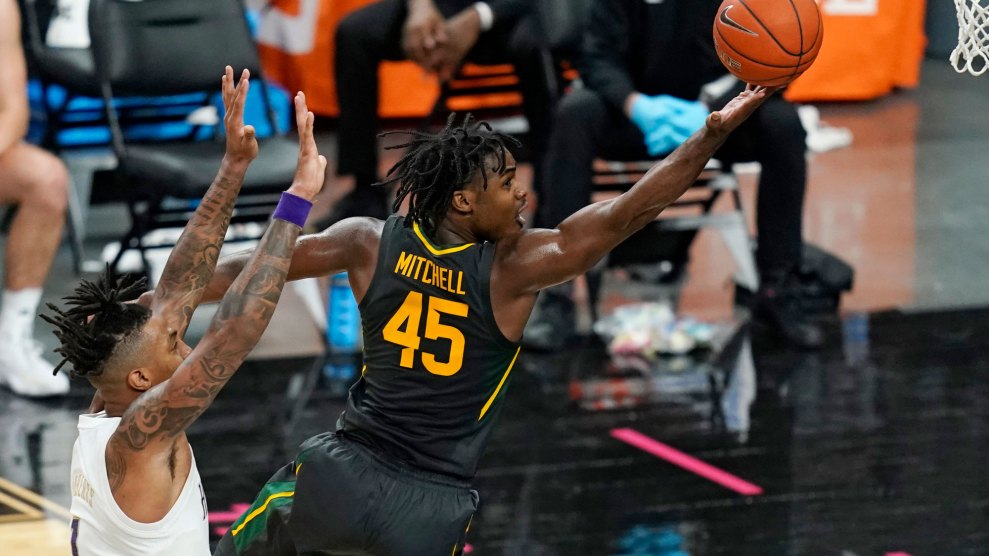
Baylor's Davion Mitchell shoots around Washington's Nate Roberts in Las Vegas game. Baylor's head coach Scott Drew didn't make the trip because he tested positive for COVID-19. John Locher/AP

Baylor's Davion Mitchell shoots around Washington's Nate Roberts in Las Vegas game. Baylor's head coach Scott Drew didn't make the trip because he tested positive for COVID-19. John Locher/AP
Sponsored Post